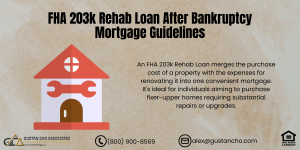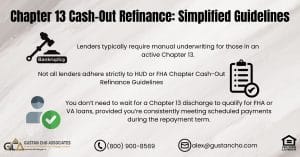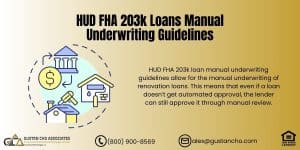This guide covers FHA MIP versus conventional PMI for mortgage borrowers. Mortgage Insurance is mandatory on all FHA loans and Conventional loans with less than 20% equity. There are pros and cons of FHA MIP versus Conventional PMI. In this article, we will discuss the pros and cons on FHA MIP versus conventional PMI for mortgage borrowers and the benefits of FHA loans. FHA loans is one of the most popular loan programs in the United States. This is due to its lax credit and debt to income ratio requirements. HUD requires a mortgage insurance premium (MIP) for all FHA-insured mortgage loans. In this article, we will discuss and cover FHA MIP versus conventional PMI for mortgage borrowers.
FHA MIP Versus Conventional PMI: Types of Mortgage Insurance
There are two types of FHA mortgage insurance premiums: A one time upfront premium of 1.75% can be rolled into the loan. Annual FHA MIP which is 0.55% of the balance of the loan on 30 year fixed rate mortgages. The upfront FHA MIP of 1.750% of the loan amount can be financed into the loan amount or the borrower can roll the premium into the loan amount. Condominiums do not require any upfront premium. However, borrowers who want to purchase condos need to make sure that the condominium is HUD Condo Approved.
Why Are FHA Loans So Popular?
Many home buyers think that FHA Loans are for people with bad credit. This is not always the case. FHA loans are extremely popular because homebuyers can purchase a home with a low down payment and low rates. The only disadvantage of 30 year fixed rate mortgages is it not just requires the one-time upfront FHA MIP of 1.75% but the annual FHA MIP over the life of the 30 year Loan term.
FHA MIP (Federal Housing Administration Mortgage Insurance Premium) and conventional PMI (Private Mortgage Insurance) are both types of insurance that protect lenders in case borrowers default on their mortgage loans.
However, there are some key differences between them, and borrowers should consider them when choosing between an FHA loan and a conventional loan. In this guide, we will cover a comparison of FHA MIP and conventional PMI. As of my last update, FHA loans require a 3.5% down payment, while conventional loans may require a 5% to 20% down payment.
Click here to apply for FHA loans
Government Backing
FHA loans are backed by the federal government through the Federal Housing Administration, while conventional loans are not government-backed.
Credit Score Requirements
FHA loans have lenient credit and income guidelines regarding credit score requirements. Homebuyers with bad credit can qualify for an FHA loan, albeit with higher MIP premiums. Conventional loans usually require higher credit scores for the best rates, and borrowers with lower credit scores may face higher PMI premiums or not qualify.
Cancellation FHA MIP Versus Conventional PMI
FHA MIP is required for the life of a 30-year fixed-rate FHA loan if the down payment is less than 10%. If the down payment is 10% or more, the FHA mortgage insurance premium can be canceled after 11 years. Conventional PMI can typically be canceled once the borrower has built up enough equity in the home (usually when the loan-to-value ratio reaches 80% or less).
FHA loans have maximum loan limits set by the Federal Housing Administration, which vary by location and property type. Conventional loans may have higher limits, especially for borrowers with excellent credit profiles.
FHA loans are suitable for primary residences only and have restrictions on the types of properties that can be financed. Conventional loans can be used for primary, second homes, and investment properties. HUD, the parent of FHA, requires a one-time upfront mortgage insurance premium of 1.75%. FHA loans also have an annual mortgage insurance premium of 0.55%, typically paid monthly. Conventional loans require PMI if the down payment is less than 20%. However, the premiums may be lower than FHA MIP, especially for borrowers with higher credit scores.
The Benefits of FHA Loans
3.5% down payment on home purchases. FHA loans are for one to four-unit owner occupant homes. Second homes and investment home loans do not qualify for FHA loans. The minimum credit scores to qualify for FHA Loans is 580 FICO. FHA Loans With Under 580 Credit Scores. Borrowers with credit scores under 580 FICO can qualify for FHA loans but need a 10% down payment
FHA Loan With Bad Credit
FHA Guidelines on collections and charge-offs state that borrowers can qualify without needing to pay outstanding collections and charge off accounts: Under HUD Guidelines the maximum front end DTI is 46.9% and back end DTI is 56.9% for borrowers with at least a 620 credit score in order to get an approve/eligible per DU/LP FINDINGS.
Non-occupant co-borrowers are allowed on FHA loans. Non-occupant co-borrowers need to be related to the borrower by blood, law, or marriage. Gustan Cho Associates specializes in FHA Loans with no lender overlays.
We only follow the HUD Guidelines. Reverse Mortgages are FHA loans. FHA 203k Rehab Loans are FHA insured mortgage loans. Only require 3.5% down payment. One of the greatest benefits of FHA MIP Versus Conventional PMI is that the annual FHA MIP is constant at 0.55%. This holds true no matter how good the borrower’s credit and/or loan to value is. Apply for a FHA loan with bad credit, click here
Benefits of FHA MIP Versus Conventional PMI For First Time Home Buyers
FHA programs have many benefits for first-time homebuyers and for home purchasers who have had the following: Prior bad credit. 3.5% down payment on home purchases. Homeowners can do FHA Streamline Mortgage with no credit scores, no income, no appraisal, and close in two weeks. Homeowners can do an 0.80% loan-to-value (LTV) cash-out refinance
Borrowers With Lower Credit Scores
580 FICO for 3.5% down payment home purchase mortgage. 10% down payment for borrowers under 580 FICO and down to 500 credit scores. Up to 6% seller concessions allowed by sellers to contribute to buyer’s closing costs.
Outstanding Collections and Charge-Off Accounts
These do not have to be paid in order to qualify for FHA loans. Borrowers can qualify with prior bankruptcies or foreclosures after meeting the mandatory waiting period.
FHA Versus Conventional Mortgage After Bankruptcy & Foreclosure
HUD and Fannie Mae and Freddie Mac have loan programs for borrowers after bankruptcy and foreclosure. Here are the mortgage guidelines after bankruptcy and foreclosure for FHA and Conventional loans. HUD requires a two-year waiting period after Chapter 7 Bankruptcy discharged date versus Conventional loans where it has a four-year waiting period. HUD allows borrowers to qualify for an FHA loan one year into a Chapter 13 Bankruptcy.
There is no waiting period after the Chapter 13 Bankruptcy discharged date. Conventional loans require a two year waiting period after the Chapter 13 Bankruptcy discharged date.
HUD allows borrowers to qualify for FHA mortgage three years after the recorded date of foreclosure, deed in lieu of foreclosure, and short sale. Conventional loans require 7 year waiting period after foreclosure. The waiting period is four years after a deed in lieu of foreclosure or short sale. There is a four year waiting period from the discharged date of Chapter 7 to qualify for Conventional Loan if the borrower had mortgage part of Chapter 7 Bankruptcy. HUD requires a three year waiting period from the recorded date of foreclosure or short sale date if they had mortgage part of Chapter 7 Bankruptcy. The start date is very important. This is because most banks or lenders are in no hurry to transfer the deed out of the homeowners’ name.
Differences of FHA MIP Versus Conventional PMI
As mentioned earlier, HUD has two separate types of mortgage insurance premiums on FHA mortgages. The upfront FHA MIP is 1.75% which is a one-time cost and can be rolled into the loan. Besides the upfront mortgage insurance premium, HUD requires an annual FHA MIP which is 0.55% of the loan balance that needs to be paid throughout the term and life of the 30-year loan. With Conventional Loans, the annual mortgage insurance is not a fixed rate but depends on the borrower’s credit profile.
Factors Determining Private Mortgage Insurance on Conventional Loans
In this section, we will cover what determines private mortgage insurance on Conventional loans: Any conventional loan amount where the borrower puts less than 20% down payment, private mortgage insurance is required. Borrower’s credit scores. Amount of down payment or loan to value. The type of property will have a bearing on the amount of private mortgage insurance.
FHA MIP Versus Conventional PMI With One-Time Upfront MIP
In summary, FHA loans are often more accessible to borrowers with lower credit scores and require lower down payments. However, they come with higher MIP premiums and stricter guidelines. Conventional loans may have lower overall costs for borrowers with good credit scores and larger down payments. However, they require higher credit scores and stricter underwriting standards. Borrowers should carefully consider their financial situation and long-term homeownership goals when choosing between FHA and conventional loans.
Consulting with a mortgage lender or financial advisor can help borrowers make informed decisions based on their circumstances.
There are two ways conventional borrowers can avoid private mortgage insurance. One-time upfront PMI. Lender Paid Mortgage Insurance, LPMI. Like FHA’s upfront mortgage insurance premium, conventional borrowers can pay a one-time upfront mortgage insurance. The one-time private mortgage insurance is when a conventional borrower pays a one-time upfront PMI similar to the upfront FHA MIP. They no longer have to pay mortgage insurance on purchases of less than 80% loan-to-value. The lender-paid mortgage insurance or LPMI, is when the lender pays the monthly mortgage insurance premium but the cost to the borrower is that they get a higher mortgage rate. If you have any questions on our upfront private mortgage insurance or LPMI conventional loan program, please contact Gustan Cho Associates at 800-900-8569 or text for a faster response. Or email us at gcho@gustancho.com.
Click here to apply for loan by fill up your requirement and we will back with review quote









